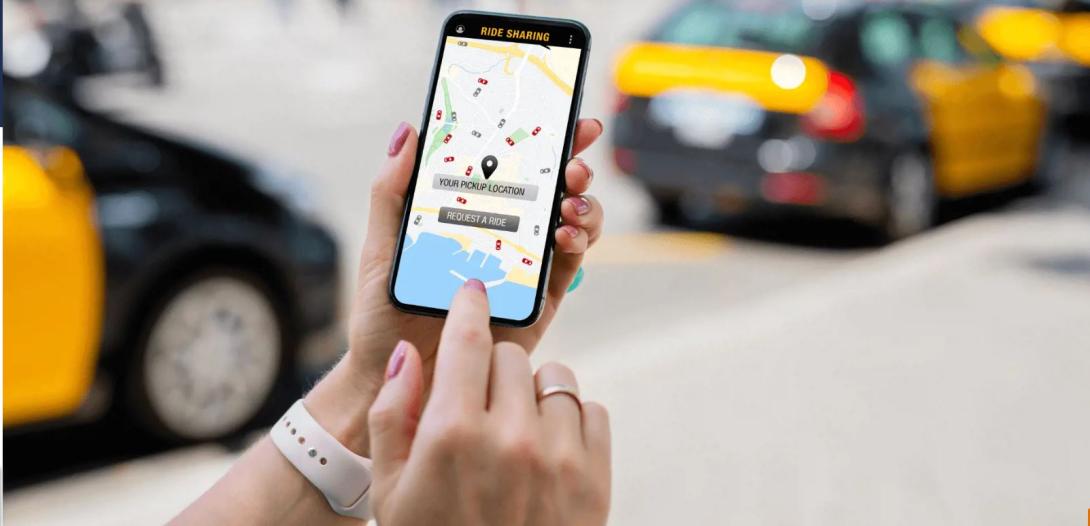
Aaron & Partners have represented DELTA Taxis in DELTA Merseyside Limited & Anor v Uber Britannia Limited, in a landmark ruling in the Court of Appeal, which has ensured that customers using taxi services outside of London will not have to pay VAT on each fare.
Layla Barke-Jones, Dispute Resolution Partner at Aaron & Partners, who represented DELTA Taxis, in the case, said:
“Today’s decision handed down by the Court of Appeal is a victory for the taxi industry and all those who depend on it. This was a landmark case, the result of which could have had a terrible impact on the lives of so many people – not to mention the administrative burden for operators.
“The collective aim for us and our client in this case has always been to protect passengers and taxi firms alike, so the news that customers outside London won’t have to have VAT forced upon them will bring a collective sigh of relief.
“Despite positive economic indications of late, everyone knows that the cost-of-living crisis has hit working families everywhere. The last thing anyone needed was yet another price hike.
“Vulnerable consumers caught in the crossfire of Uber’s lawsuit rely on the services offered by taxi firms. This frequently includes the disabled, elderly and low income households. The government recognised the potential impact of the initial High Court judgment by launching a government consultation identifying that thousands of firms would need to change their operating model forcing them to now collect VAT from passengers.
"DELTA Taxis, and fellow operator Veezu, rallied against it by appealing the previous decision up to the Court of Appeal. Seeking a decision on appeal that would maintain the safety that the licensing regime provides and promoting fair and open competition for private hire businesses.
“Therefore, we warmly welcome today’s announcement that the appeal has been successful – and would like to pay our gratitude to the hard work of our team including Counsels Philip Kolvin KC, and Jen Coyne.”
The background to the case
In March 2021, Uber was forced to raise its prices after the court ruled its drivers now viewed as workers, rather than simply agents.
Uber rallied against this in London and lost.
Uber then chose to bring a major lawsuit against Merseyside-based Sefton Council over contract terms for all taxi operators outside of London.
In November 2022, the High Court ruled that operators must contract with passengers. In that case private hire operators intervened warning of a potential consequence leading to passengers having to pay VAT on private hire journeys, leading to potential fare hikes of 20%. Despite the warning the judge, handing down her ruling in July 2023, sided with Uber.
The government confirmed the fears and launched a consultation on possible options to avert the addition of VAT to all journeys. Whilst some private hire companies, like Uber, do charge their passengers VAT it has been down to the individual firms to decide which business model to use as to whether VAT would apply. The decision secured by Uber in the case of Uber -v- Sefton Borough Council took that choice away from the firms and from passengers.
As well as the fare increase heavily impacting the public amid the cost of living crisis, it was also set to place significant administrative burdens on taxi firms. It was anticipated that forcing operators to change their business model would force a large number of them out of business. It was feared that vulnerable groups who are regular users of private hire services, including the elderly and disabled, would be particularly affected.
Following the ruling, during his Spring Statement, the then-Chancellor announced the Government would launch a consultation, the consultation continues to run until August 8 to address the issue.
Meanwhile, the judgment was also challenged at the Court of Appeal by DELTA taxis and Veezu, with a decision announced today that overturned the previous one. Meaning passengers would not now face inevitable 20% fare hikes and private hire firms in England and Wales outside of London wouldn’t have to grapple with how to collect the tax and account for it to HMRC if they chose to operate a model which has been used by the industry for over 48 years.
Passengers and firms now, once again, have the freedom to choose between firms which used different models for their businesses. The ruling will not affect Uber, who will continue to charge VAT on fares, but will mean many smaller firms can continue to operate as they have previously. Uber is understood to be considering an appeal.
Key comments in the judgment
Lord Justice Lewison cautioned against whether it was ever necessary for the Courts to give the declaration Uber were seeking, particularly as there was no dispute.
Lord Justice Lewison also commented that the regulation of private hire was about keeping the passenger safe in the vehicle in which they are travelling and that the Act did this without needing to interfere in contract law.
Lord Justice Lewison said the interpretation which Uber were seeking was pinned on wording in the Act (added after the Act was drafted) which was “too slender a peg” on which to hang the entire case for Uber.
